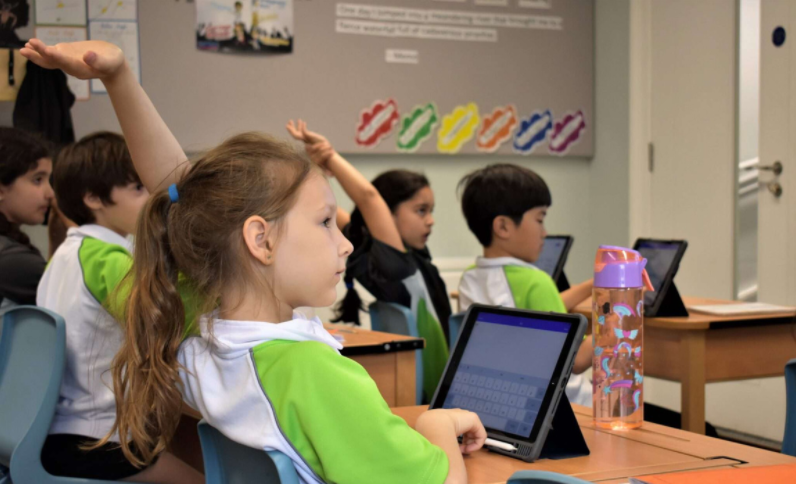The importance of digital citizenship in education
Posted on 25th Mar 2022 in School News, Technology
Every day our children are confronted by media and technology. We live in a world where children need to use or interact with technology from a very young age; at home, at school, to communicate with friends and family, to relax and have fun and to document their lives. Nearly 98% of children aged 8 and under live in a home with a mobile device and a television, and 42% of children now have their own tablet device. Matthew Charles, Head of Digital Learning at Prince’s Gardens Preparatory School in Kensington, London, talks to us about the importance of digital citizenship in education and how we can ensure our children are safer online.
Digital and social technologies are becoming increasingly misleading and invasive and as technology and life become more and more intertwined. The need for our children to understand how to safely navigate through this digital world becomes of paramount importance. Digital citizenship is the responsible use of technology to learn, create and participate. Becoming a digital citizen addresses the top concerns for parents, schools and teachers and ensure children learn how to choose the safest and most responsible course of action.
At Prince’s Gardens children are encouraged to become positive digital citizens through the use of Common-Sense Media’s ‘Digital Citizenship’ program. Teaching encompasses a wide range of topics including media balance and wellbeing, privacy and security, digital footprint, communication, cyberbullying and news and media. When teaching digital citizenship, we believe that a holistic understanding of these topics equips children not only with the tools and skills they need, but also how to identify a situation and why it is important that we respond the right way.
In addition to helping children navigate and avoid potentially dangerous situations, digital citizenship gives children the confidence to create a positive and constructive digital footprint that helps pave the way for those who come after them. At Prince’s Gardens, the Upper School (Year 4-6) learn about how to cite and give credit to work they have found on the internet and how to safely share content they have created; putting them in good standing moving into secondary school and university.
At the beginning of every half term a new digital citizenship topic is introduced during assembly. In conjunction with this introduction, the topic is reinforced through timetabled ICT (Information and Communications Technology) lessons from Year 1-6 at Prince’s Gardens. This adds to the holistic approach by ensuring that the whole school is focusing on the same topic at any one time and children have the opportunity to discuss with peers from all different year groups.
This is further reinforced by the School’s Student Digital Leaders from Years 3-6, who are selected based on video submissions demonstrating their understanding of digital citizenship and technical ability. Children from Year 3-6 have 1:1 devices, therefore the use of technology is not only restricted to ICT lessons but integrated throughout the curriculum as an extension of their pencil case with digital citizenship reinforced at all times.
If you are interested in knowing how digital citizenship can be reinforced at home, one suggestion is to link your child's learning at school to real world applications and model how you use technology. Whenever you log into an app or account, make a point of privately entering passwords and codes. Or when you are online and come across a pop-up or request to allow cookies, explain how you know it is or isn’t dangerous. And remember, your child will always be looking to you as an example of how to act and interact with others so make sure they see you communicating in a respectful way with people online.
But most importantly, the odds are, it won’t be long until our children are explaining to us how to use the latest technology, so just do the best you can to ensure your child in safe and responsible when online.